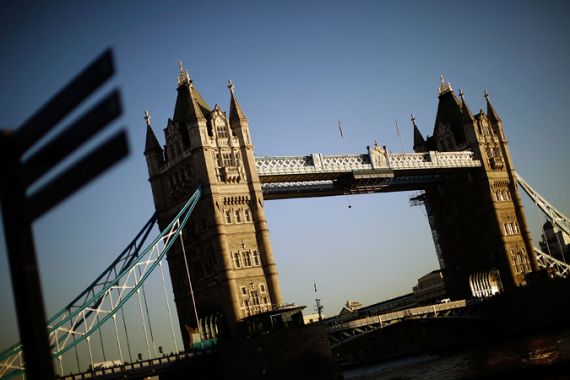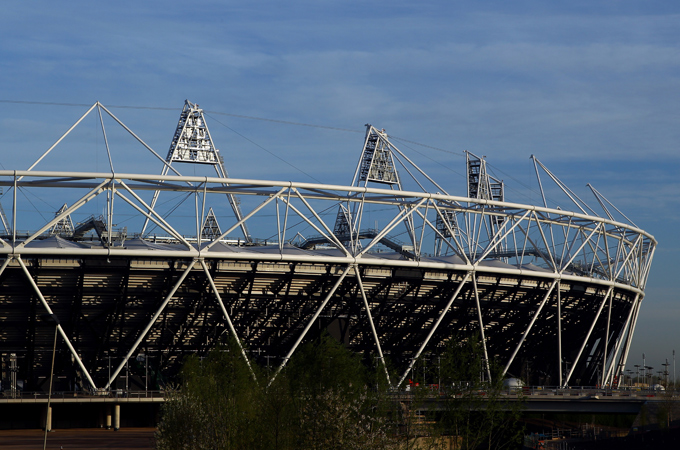London looks to Olympic legacy
The countdown begins to the London Games as organisers aim to ensure a permanent legacy for the Olympic Park site.

 |
| The Olympic stadium has still to attract a permanent owner, but the Aquatics Centre, left, will be run locally [GETTY] |
The London Olympics countdown entered its final 200 days on Monday with government and organisers talking up the legacy Britain can look forward to long after the last medal has been won and the show is over.
On the day three more Games venues had their future ownership announced, British Prime Minister David Cameron held his first cabinet meeting of the New Year at the Olympic Park in Stratford, east London, instead of at Downing Street.
“I want the message to go out loud and clear, from tourism to business, sport to investment, we are determined to maximise the benefits of 2012 for the whole country,” Cameron said in a statement.
“Today, as we mark 200 days to go, and six out of the eight Olympic venues having already secured their future, we are well on track to delivering a lasting legacy for the whole of Britain.”
Legacy questions
Sporting legacy and the economic regeneration of a run-down area of east London, without the facilities becoming a drain on public finances after the Games, were central to London’s successful bid in 2005 but critics have questioned how much money the government can recoup.
Construction giant Balfour Beatty PLC will take over the running of the Olympic Park, which includes the 115 metre high AccelorMittal Orbit feature, in a 10-year $77.04 million deal.
The wave-shaped Aquatics Centre and multi-use Handball Arena, where the cabinet met, will be operated by locally based Greenwich Leisure Limited.
The new contracts will create at least 254 jobs on the Park, which will host many of the showcase events including athletics, track cycling and swimming when the games open on July 27.
The government expects the Orbit, a landmark helter-skelter of a structure designed by artist Anish Kapoor and taller than New York’s Statue of Liberty, to attract up to a million visitors a year.
They hope the Aquatics Centre could caters for 800,000 users a year as a local community facility accessible to all as well as remaining a venue for world class events.
The multi-use Arena will become the capital’s third largest, hosting up to half a million visitors a year to concerts, exhibitions and sports events.
Two left
 |
| Still up for grabs: The Olympic Stadium [GALLO/GETTY] |
The remaining two venues yet to have confirmed legacy operators are the main stadium, which has cost $748.81 million to build, and the international broadcast and press centre.
“To find operators to take over these world class facilities so far ahead of the Games and to secure their commitment to spread jobs and opportunities throughout the local communities is the icing on the 2012 cake,” said London mayor Boris Johnson.
“We can now start the run-in to a fantastic year of celebration with huge pride and optimism that London will stage a great Games, delivering lasting sustainable benefits long after the athletes have departed.”
The Games have a budget of 14 billion dollars, with venue security accounting for some 853 million and a further 732 million allocated to policing and security measures outside stadiums.
Monday’s cabinet meeting followed media reports at the weekend that police carrying out security tests at the Olympic Park had managed to smuggle in a fake bomb on at least one occasion.
Sebastian Coe, chairman of organisers LOCOG, said there was still much to do.
“We are all very excited but I think we all feel a massive weight of responsibility to get the project across the line and to deliver something that’s not just going to make 60 million people in the UK proud but really excite the four billion people who are going to be watching us over the duration of the Games,” he told Sky Sports television.
Paul Deighton, the LOCOG chief executive, urged businesses and the public to embrace the Games and not squander the opportunity of a lifetime.
“The thing that keeps me up at night is whether we will take full advantage of the extraordinary opportunity coming our way this summer,” he told the Guardian newspaper.
“I know that by the time we get to the end of this most people will say that they had no idea of the scale and opportunity of this, if only. I don’t want too many if onlys.”